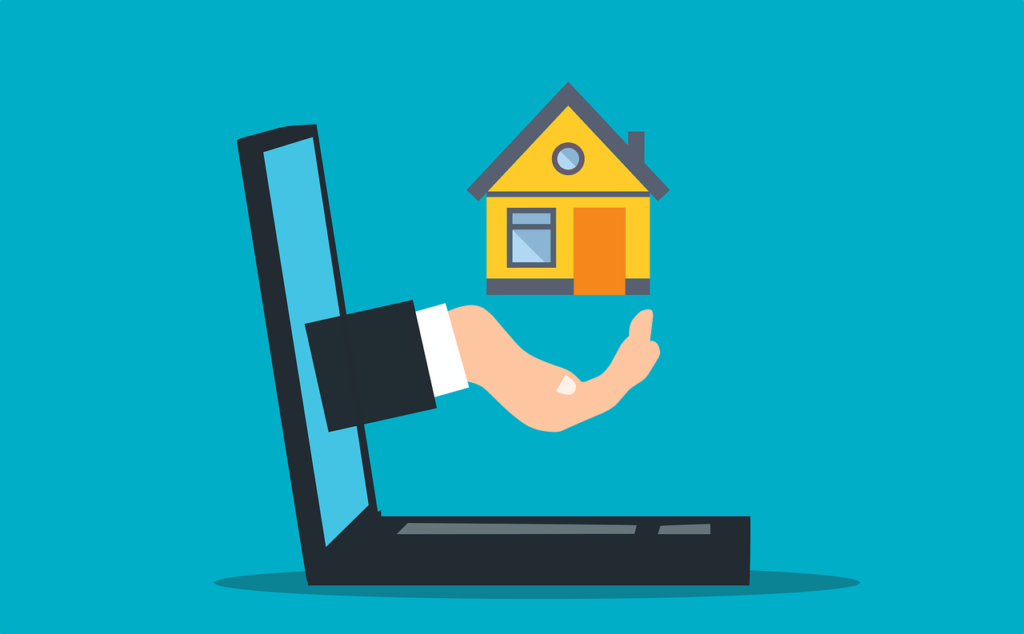 When digital technology began emerging as a primary method for business communications, the real estate industry was slow to adapt. Real estate agents have traditionally met with clients in person and switching to digital communication didn’t make sense. When a real estate investor or agent wants to sell a property, their personality does most of the selling. All that is lost when communicating online.
When digital technology began emerging as a primary method for business communications, the real estate industry was slow to adapt. Real estate agents have traditionally met with clients in person and switching to digital communication didn’t make sense. When a real estate investor or agent wants to sell a property, their personality does most of the selling. All that is lost when communicating online.
However, in recent years, the real estate industry has settled into its place online with listing websites and 3D virtual tours. Although technology hasn’t replaced in-person real estate dealings, the following technologies largely support commercial real estate investors.
1. Property management software
There are several industry-leading property management software companies that have transformed the way investors work. Many property management applications make it easy for investors to manage multiple properties and tenants. For example, property investors have plenty of tasks on their plate every day. These tasks can become overwhelming. Using digital software to manage tasks, tenants, and properties reduces the overwhelm.
For property investors who are acting in full capacity as a landlord, having the right property management software is critical. Investors-turned-landlords who aren’t utilizing a property management company don’t have the luxury of delegating tasks to a team. Applications like ResMan and RentRedi do the job quite nicely.
ResMan is focused on streamlining communication between the landlord, their tenants, and team members or contractors. This application is popular because the interface is user-friendly and you don’t need technical knowledge to make it work. ResMan also has a superior customer service department that responds quickly to inquiries.
RentRedi is a more comprehensive application that helps landlords with tenant screening and rent collection online. There’s even a place for tenants to submit maintenance requests, which improves the likelihood of small issues getting reported right away.
When you’re managing your own investment properties, you need property management software to stay organized and maintain effective, open communication with your tenants.
2. Digital invoicing software
Every business owner needs invoicing software, including real estate investors. Businesses renting commercial space know when their bills are due, but you’d be surprised at how many people forget about their bills even when they’re due on a monthly cycle that never changes.
People are busy and short on time. When an invoice is just an invoice, some clients will let their bills slide until they get around to paying. Digital invoicing software turns invoices into an interactive request for payment by including a link that makes it easy for the tenant to pay rent immediately. For example, if a client pays rent through PayPal, their invoice needs a link that takes them to a page where they can pay their rent with just a few clicks.
Some tenants will insist on writing a physical check and that’s fine. They can mail their check with a printed copy of their invoice. However, most tenants prefer to pay all of their bills online. If commercial real estate investors want to get paid in full and on time, they need invoicing software.
3. Smart security systems
Smart security systems, including biometric scanners, fingerprint locks, and video surveillance that uses facial recognition technology have been hot discussion topics for the last few years. Although residential tenants have blocked their landlords from using smart security systems, the commercial industry is different.
Unlike residential tenants, commercial tenants are more likely to embrace and even prefer smart security systems to protect their business. For example, requiring an authorized fingerprint to open a lock is a great way to prevent thieves from picking a standard lock at night. Likewise, having a video camera system powered by facial recognition software can help a business owner catch any thief that manages to get past security barriers.
If you’re a commercial landlord interested in smart security systems, including door locks, check out this guide to smart lock systems. This guide includes a description of how each lock system works. Some locks come with multiple entry methods like a keypad, a fob scanner, and a remote mobile app. Other smart locks can generate temporary keys for granting immediate access to emergency repair personnel if you happen to be out of the area.
Technology is the future, even in real estate
Although the real estate industry has been slow to adapt to digital technologies, that will change in the near future. The whole world is moving to a digital presence and anyone who doesn’t get on board will simply be left behind.